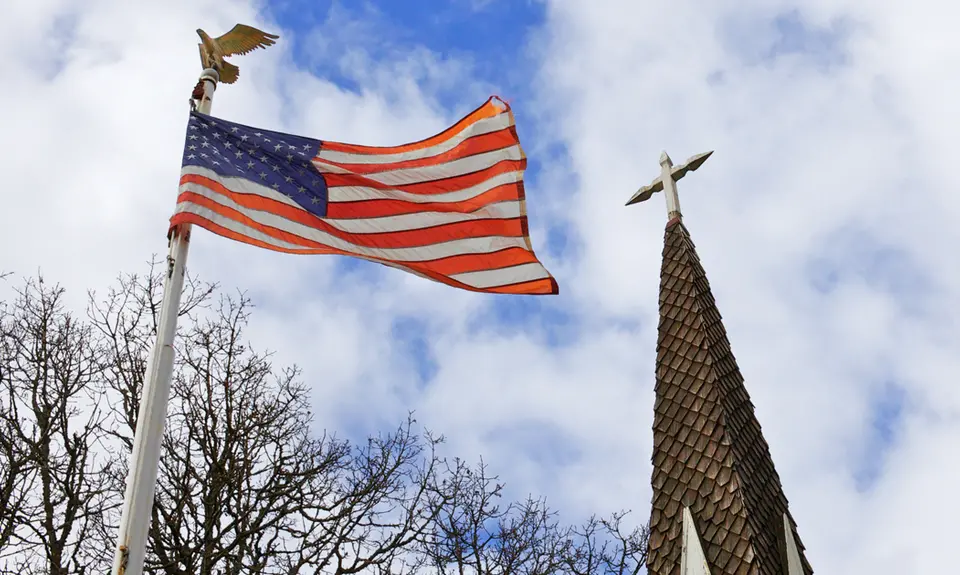“Confirmed Judges, Confirmed Fears” is a blog series documenting the harmful impact of President Trump’s judges on Americans’ rights and liberties. Cases in the series can be found by issue and by judge at this link.
Trump Sixth Circuit judges John Bush and John Nalbandian cast key votes in an unsigned order that granted a special exemption to religious schools from a temporary county order that closed all private and public schools in grades 7-12 from December 4 until January 11 due to increased health risks caused by the pandemic. The December 31, 2020 order, which effectively reversed a district court decision in the same case, is in Monclova Christian Academy v Toledo-Lucas County. Health Dept.
Like in many other counties and states across the country, the Toledo-Lucas County Health Department enacted temporary restrictions on various types of public activities during the pandemic. Although public and private schools had earlier been allowed to stay open in the county if they followed health and safety protocols, the situation grew much worse by late November, when the county began suffering from an infection rate that is “over 5 times the CDC’s high-incidence population rate.”
Because of concern about community spread over holiday periods, during at least part of which schools are closed anyway, the county enacted temporary restrictions on all schools for the period from December 4 until January 11, 2021. During that period, all public, religious, and other private schools are to be closed for in-person instruction for grades 7-12. Schools can open for limited periods to conduct tests and for “religious educational classes or religious ceremonies.”
“[N]ine Christian schools,” as the court of appeals described them, filed a lawsuit claiming that they should be allowed to remain fully open. In a careful 15-page opinion, a federal district court denied the schools’ request for injunctive relief, noting that “all schools” were being treated the same except for the “carve-out” permitting religious classes and ceremonies. The religious schools nevertheless appealed to the Sixth Circuit and sought an injunction against the order.
Trump judges Bush and Nalbandian joined an unsigned order by a three-judge panel granting the religious schools’ request. The panel acknowledged that the Sixth Circuit had recently stayed an injunction against a Kentucky order that similarly closed both public and private schools for a temporary period, which the Supreme Court majority declined to disturb in a recent decision. But the panel argued that the Kentucky decision “said nothing” about the argument, supported in dissent in the Kentucky case by Justices Gorsuch and Alito, that the order was improper because it allowed other non-school ”secular activities” to be “less restricted than the closed parochial schools.” Because facilities like “gyms” and “office buildings” remain open, the panel concluded, the religious schools experience “greater burdens” than some other “comparable secular facilities,” and the county’s order is likely unconstitutional.
The claim that schools that conduct classes all day are “comparable” to gyms and buildings where people generally remain for shorter periods was specifically rejected by the district court. Instead, the court explained, the “comparable secular activities” in this case are “classes offered by all other schools” in the county, which have “substantially similar groupings and movements of individuals” and the “reasons for suspending in-person instruction apply precisely the same to them.” The panel including Trump judges Bush and Nalbandian, however, instead followed the dissent of Justices Gorsuch and Alito in the Kentucky case, where they claimed that the differential treatment of non-school indoor gatherings like restaurants “resulted in unconstitutional discrimination against religion.”
Because the county’s closing order is set to expire on its own terms less than two weeks after the panel decision, there may not be further litigation in this specific case. The district court, however, warned about the dangers of the religious schools’ argument for preferential treatment of religion, in the context of COVID-19 and elsewhere:
"Plaintiffs’ arguments would mean that States could not mandate that students attending parochial schools receive the equivalent number of hours required of public school students or require that parochial schools provide courses in specific subjects…[A] Christian business would be exempt from minimum wage and maximum hour laws, while Christians in states where officials have issued COVID-19-related orders closing restaurants for in-person dining could not be prohibited from gathering to share a meal in one of those restaurants."
At least until recently, as the district court explained, courts including the Supreme Court have recognized that a “religious institution’s sincerely held beliefs” do not “provide the institution with a ‘general immunity from secular laws.’” Decisions like the ruling by Trump judges Bush and Nalbandian clearly threaten that principle, with potentially dangerous consequences.
